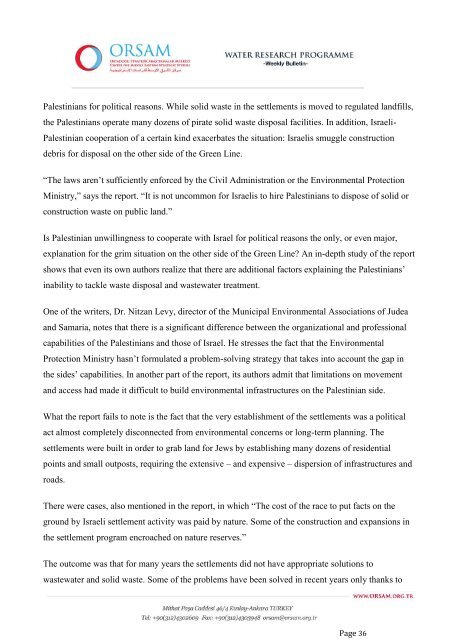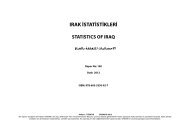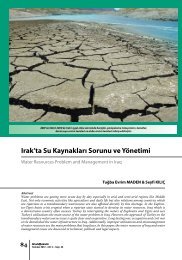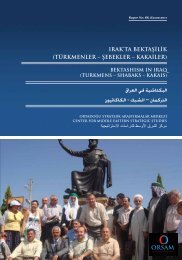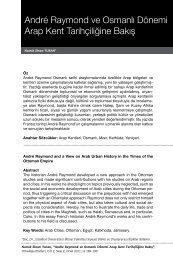30 July - 5 August 2012 - orsam
30 July - 5 August 2012 - orsam
30 July - 5 August 2012 - orsam
Create successful ePaper yourself
Turn your PDF publications into a flip-book with our unique Google optimized e-Paper software.
Palestinians for political reasons. While solid waste in the settlements is moved to regulated landfills,<br />
the Palestinians operate many dozens of pirate solid waste disposal facilities. In addition, Israeli-<br />
Palestinian cooperation of a certain kind exacerbates the situation: Israelis smuggle construction<br />
debris for disposal on the other side of the Green Line.<br />
―The laws aren‘t sufficiently enforced by the Civil Administration or the Environmental Protection<br />
Ministry,‖ says the report. ―It is not uncommon for Israelis to hire Palestinians to dispose of solid or<br />
construction waste on public land.‖<br />
Is Palestinian unwillingness to cooperate with Israel for political reasons the only, or even major,<br />
explanation for the grim situation on the other side of the Green Line? An in-depth study of the report<br />
shows that even its own authors realize that there are additional factors explaining the Palestinians‘<br />
inability to tackle waste disposal and wastewater treatment.<br />
One of the writers, Dr. Nitzan Levy, director of the Municipal Environmental Associations of Judea<br />
and Samaria, notes that there is a significant difference between the organizational and professional<br />
capabilities of the Palestinians and those of Israel. He stresses the fact that the Environmental<br />
Protection Ministry hasn‘t formulated a problem-solving strategy that takes into account the gap in<br />
the sides‘ capabilities. In another part of the report, its authors admit that limitations on movement<br />
and access had made it difficult to build environmental infrastructures on the Palestinian side.<br />
What the report fails to note is the fact that the very establishment of the settlements was a political<br />
act almost completely disconnected from environmental concerns or long-term planning. The<br />
settlements were built in order to grab land for Jews by establishing many dozens of residential<br />
points and small outposts, requiring the extensive – and expensive – dispersion of infrastructures and<br />
roads.<br />
There were cases, also mentioned in the report, in which ―The cost of the race to put facts on the<br />
ground by Israeli settlement activity was paid by nature. Some of the construction and expansions in<br />
the settlement program encroached on nature reserves.‖<br />
The outcome was that for many years the settlements did not have appropriate solutions to<br />
wastewater and solid waste. Some of the problems have been solved in recent years only thanks to<br />
Page 36


